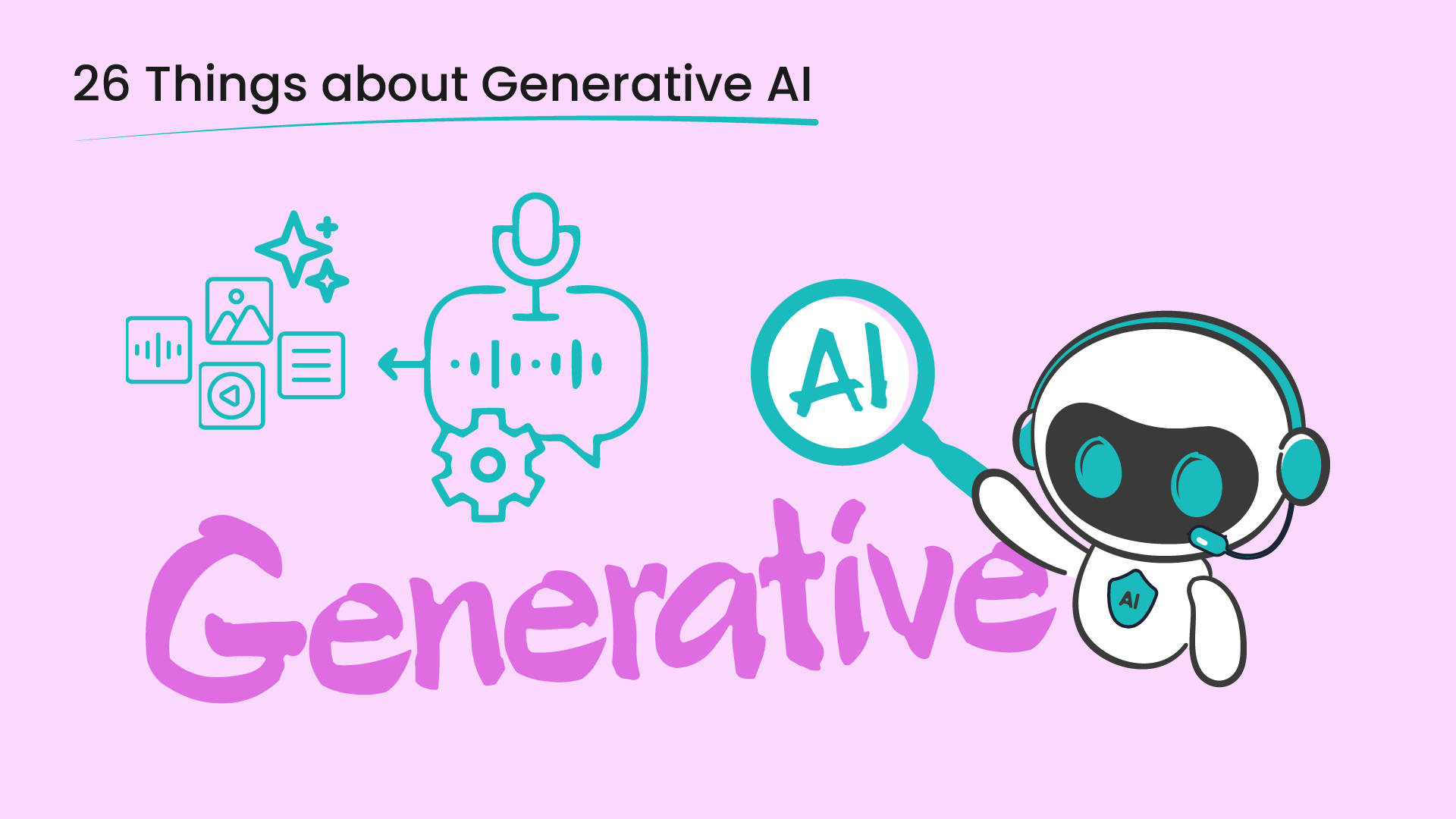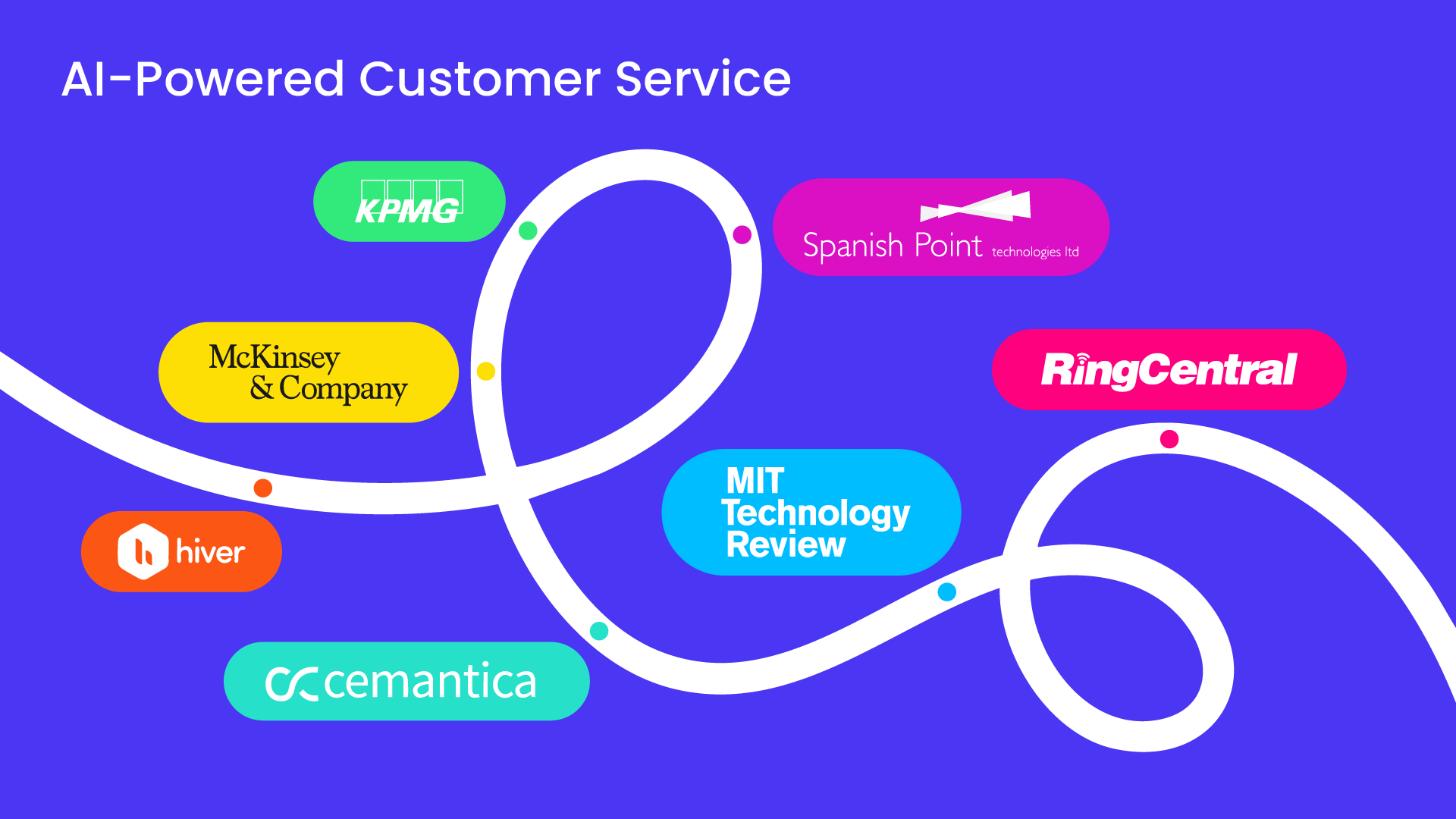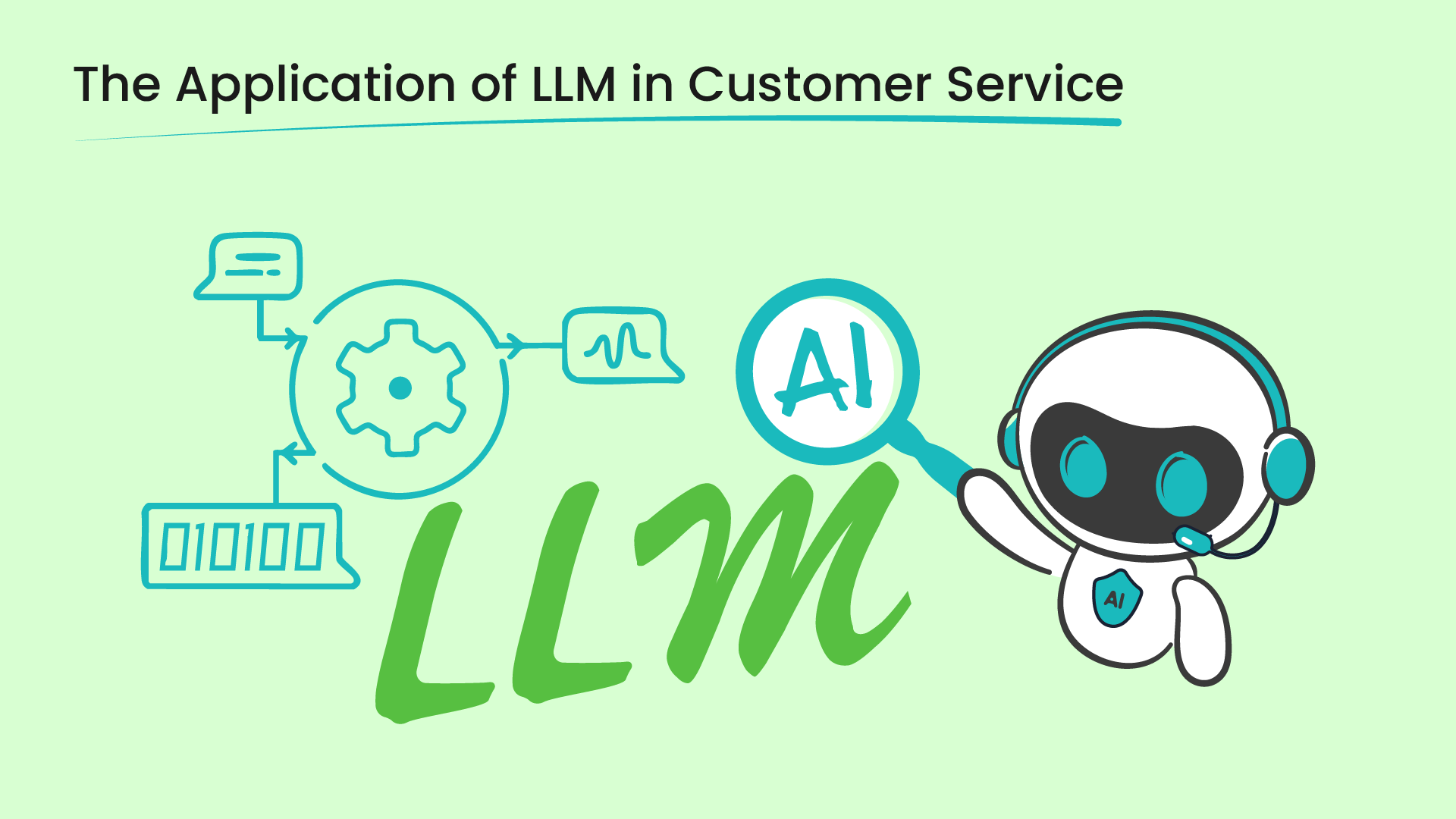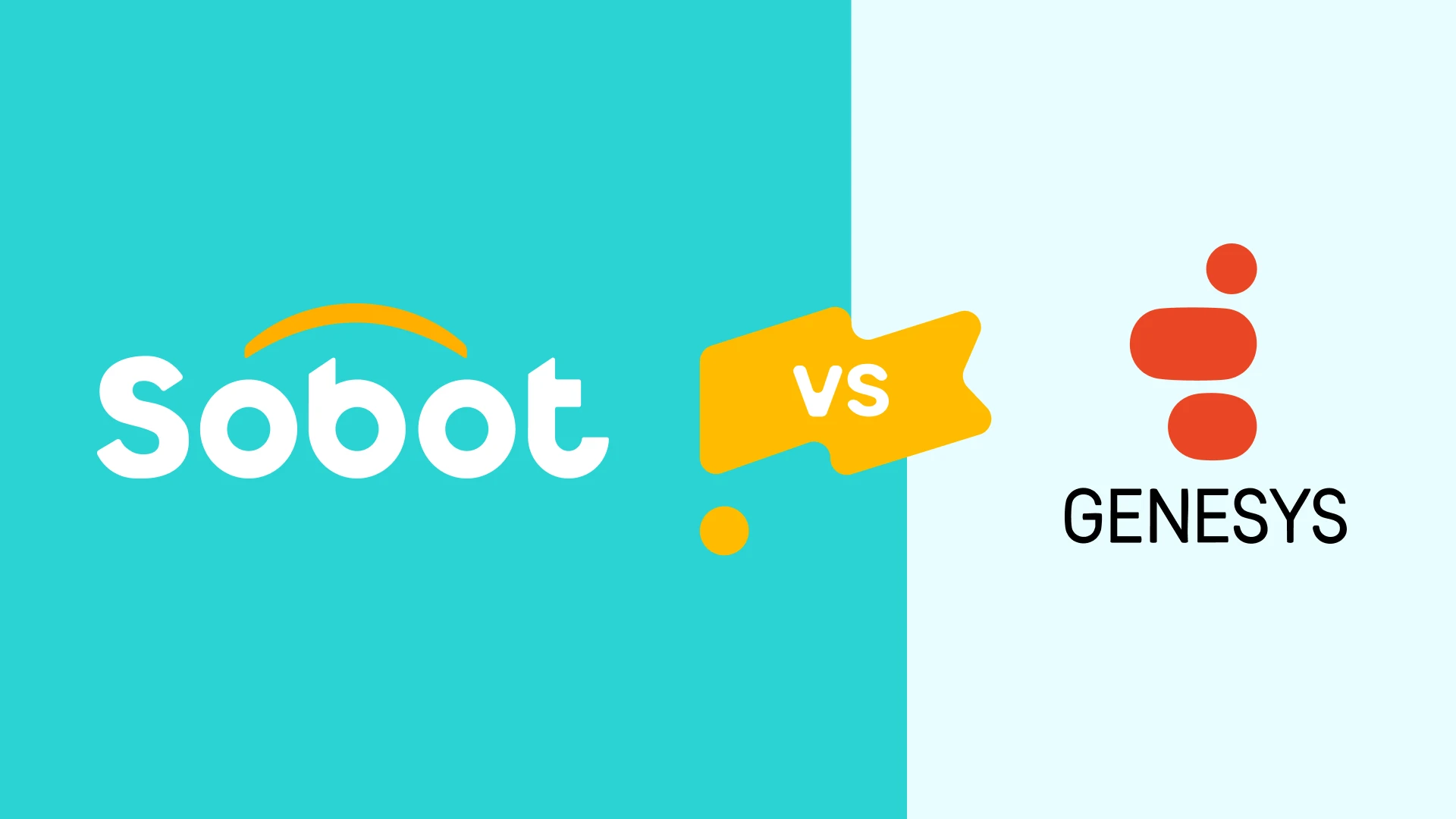AI in e-commerce is not an old concept – rather, it’s something that the industry has been thriving on for over a decade now. Artificial intelligence has been helping e-commerce owners in streamlining their customer service operations, particularly in after-sales support.
Our traditional AI solutions have played an important role in areas like automated ticketing, AI chatbots, and recommending related products to customers. However, big names like GPT, Gemini, and Claude have completely changed the narrative now, especially when it comes to e-commerce after-sales.
These AIs are made on top of something called “Large Language Models” or LLMs, and the future of customer service in e-commerce is all about them. In this article, we’re covering the sudden shift from traditional AI to LLM-powered AI and how LLMs are revolutionizing after-sales services.
Traditional AI in E-Commerce After-Sales (Why They’re Outdated!)
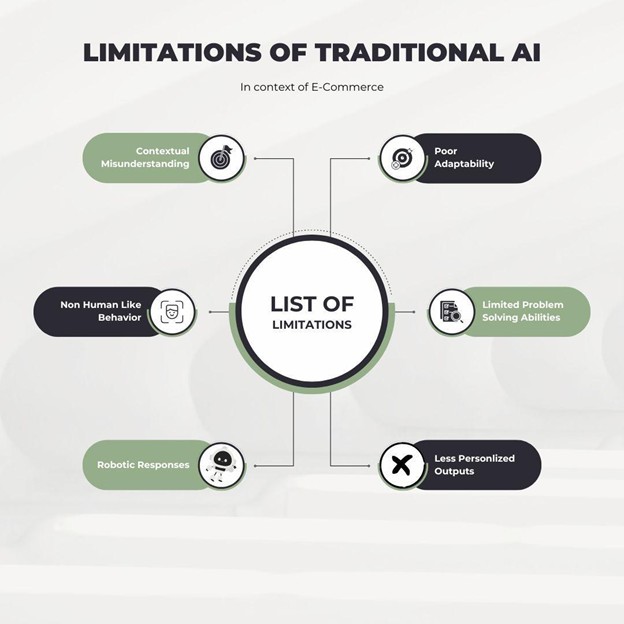
Before generative AI in e-commerce became a thing, we had businesses and platforms using traditional AI. These AIs played an important role in after-sales services. Things like an automated ticketing system, where an AI-driven ticketing system not only assigns but also categorizes customer queries to human agents, are common.
Moreover, rule-based chatbots are also quite common as they follow a specific script to answer FAQs. When you talk to a customer agent from Amazon, you might have also noticed that there are automated customer responses where the AI scans your input and shows an appropriate response.
However, all these traditional AI use cases in after-sales are now overshadowed by large language models. With traditional AI, there are huge limitations and less efficiency when it comes to understanding human emotions and providing a personalized response.
Here are some of the reasons why traditional after-sales AI is becoming outdated day by day:
- Improper Contextual Understanding: Traditional AI struggles to keep up with emotional complexity, making the responses feel robotic.
- Non-Human-Like Behavior: 78% of consumers were forced to connect with a human after the automated service channel failed to provide them with a resolution.
- Poor Adaptability: Rule-based AI doesn’t have much flexibility, leading to inconsistent responses and frustrating the customer.
- Limited Problem-Solving Abilities: Complex tasks such as refund disputes or personalized product recommendations aren’t something that our traditional AI models can be well-versed in.
These were some of the limitations. Now, let’s talk about the rise of LLM AI in e-commerce.
The Rise of LLM AI in E-Commerce
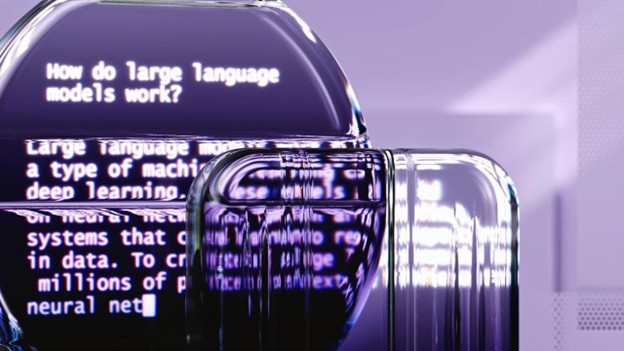
Large Language Models, also known as transformer models, are basically AI models that are trained on a huge amount of data, making them context-aware while also giving them the ability to generate natural language.
This makes the LLMs well-versed in providing a variety of tasks, especially after-sales customer service. This is why generative AI in e-commerce is the future. LLM is the perfect mixture of Natural Language Processing and Artificial Intelligence.
That’s why we are seeing the rise of many interfaces like Open AI’s GPT-4, Google’s PaLM, while IBM and Microsoft are also on top of the list. LLM systems are capable of understanding and generating human language thanks to the vast database of information that they have.
Here are some of the core concepts of Large Language Models that will make you understand them better,
- Tokenization: Breaking the text into smaller parts for better processing.
- Self-Attention: The models can focus on only relevant parts of their large database for context-aware responses.
- Fine-Tuning: With a highly customized nature, the LLMs can be trained for a specific task, i.e, after-sales customer service.
LLMs Revolutionizing the E-Commerce Industry
Before we take a deep dive into how exactly LLMs are revolutionizing after-sales in e-commerce, we must understand the LLM models that are available and what are some of the benefits that they provide.
The most common examples of that include the GPT series, Gemini, Claude, and a lot more. However, the way these LLMs are revolutionizing the e-commerce industry is something that needs extra attention.
Here’s how LLMs are revolutionizing the e-commerce industry:
- LLM-Powered Chatbot
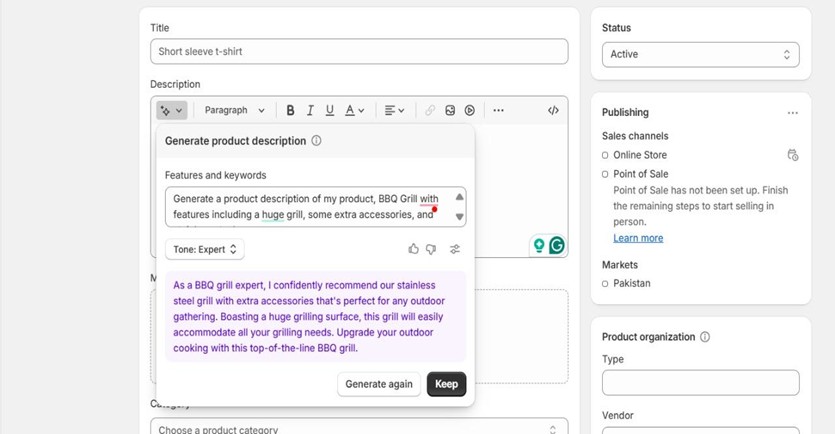
Shopify Magic is the biggest example of an AI-powered chatbot. However, it works differently from our regular chatbots. How? In this example, Shopify’s Magic is context-aware and also understands human intent. So, instead of giving generic answers to “How do I make my website more visually appealing?” it will try to understand your requirements, your target audience, and act as an actual virtual assistant.
- AI-Powered Searches:
LLMs have enabled natural language search that people can use to type queries just like they’re speaking to a person. A huge example of this would be Instacart’s ChatGPT plugin. With this tool, users can search for something like, “I want to build a PC for gaming. Please recommend some parts.” After this, the AI will recommend to you all the appropriate parts that you will need to build your PC. This turns uncertainty into actionable advice.
- Product Content for Sales:
Companies like WayFair use generative AI that helps you write content and product descriptions. This saves the sellers a lot of time and worry about getting their product descriptions written. With generative AI that WayFair uses, sellers can get recommended title and description according to what sells well.
All in all, LLMs have already started changing the dynamics of how e-commerce is working. On the other hand, this is also putting the jobs of many people in danger including content writers and virtual assistants.
How LLMs are Changing After-Sales Services in E-Commerce
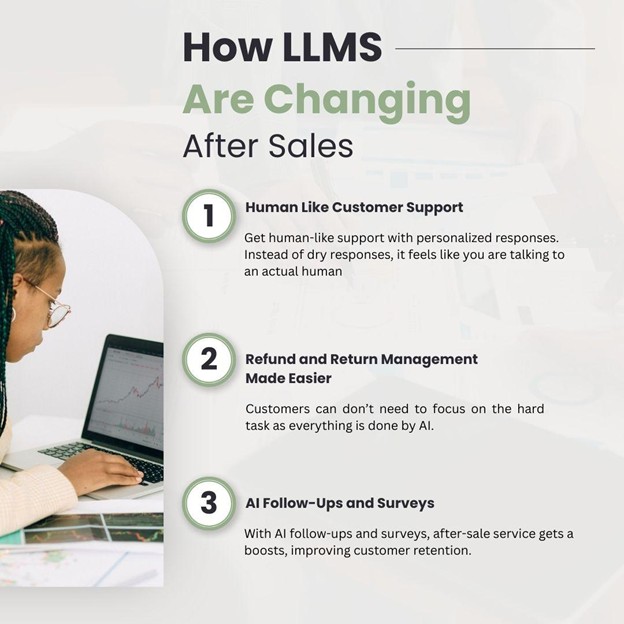
Large Language Model customer service is slowly taking over the world. Today, almost 67% of organizations are using generative AI products. These products are relying on large language models.
For after-sales service, LLMs are even more revolutionary, and here’s how they are changing the world of customer support.
1. Human Like Customer Support
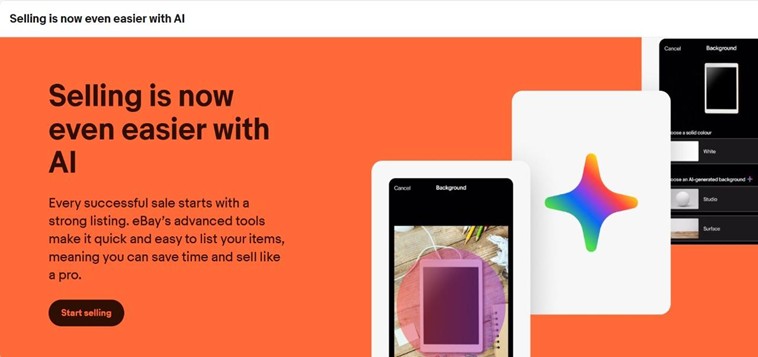
55% of support leaders are saying that ChatGPT is the reason they are going to invest in AI this year. Traditional chatbots couldn’t handle specific queries, but with LLMs, things are on a whole other level.
Consider eBay’s AI Customer Service Assistant, for example. When you ask things like “I want to return this order, how to do that?” instead of making you bounce page to page, it gives you actionable steps and sometimes even makes the job easier for you by giving you the exact button that you were looking for.
2. Refund and Return Management Made Easier
Refund and return management is a complex topic for most e-commerce stores, which is why they have to consider ways to much for hiring a lot of support assistants and making sure that their customers are happy.
With LLMs, there’s a new evolution coming. For example, with Amazon, customers can now interact with a ChatGPT-style assistant to define why exactly they are returning their product, get a replacement for what they are returning, and get complete assistance without having an actual human interaction.
This is because an LLM understands natural and vague language, making it work just like a human.
3. AI Follow-Ups and Surveys
Once an issue is resolved, LLMs can do a variety of tasks for a better customer experience. This improves retention and also ensures that a customer is happy after doing business with you.
LLMs can auto-generate follow-up emails that could take feedback from them. Moreover, it can also produced customized customer satisfaction surveys based on the situation. It can even give you a full report on the things to improve for the next time as an e-commerce seller.
A Complete Comparison of AI and LLM-Powered AI in After-Sales
| Feature (For After Sales) | Traditional AI | LLM-Powered AI |
| Context Awareness | Somewhat Limited | High and Accurate |
| Personalization | Minimal | Highly Personalized |
| Language Support | Pre-set (Limited) | Multilingual |
| Accuracy | Not Error Free | Better Precision |
| Human-Touch | No | Yes |
This table shows us an interesting comparison between AI and LLM-powered AI. In almost every department, the LLM-powered AI has perfect use in after-sales. Things like context awareness make after-sales easier since customers can feel more related to the situation. They aren’t given vague responses but actionable advices.
Future Trends and Challenges in LLM-Powered AI
Emerging Trends in LLMs for E-Commerce
-
Integration with Multimodal AI
While LLM-powered AI is gaining popularity, some of them, like Gemini, are known for their multimodal support. This means that by combining text, images, and voice, companies can improve customer interaction and solve their issues in a much more user-friendly way. For after-sales service, this is a huge one because now, customers can express their concerns and issues with, for example, a microphone option. For people who have poor typing skills, this makes getting after-sales customer service easier.
-
Hyper-Personalization
This concept refers to personalization on a deep level. In the future, we could see customized shopping and support trends at an individual level. This means that for each customer, the AI will be hyper-personalized, making them feel connected to a brand on a deeper level. This is perfect for after-sales where customers will feel like they’re still connected to you in many ways.
-
Proactive Customer Engagement
Another AI use case in e-commerce is proactive customer engagement. LLM-powered AI can predict and address customer needs even before the issues arise. This reduces the time spent on each case and also provides a positive experience to the customers.
Challenges of LLM Adoption in E-Commerce
No tech is fully foolproof, and the same is the case with LLM-powered AI. The first huge issue with LLMs’ adoption in e-Commerce is AI hallucination and misinformation. This is quite risky in after-sales, where accuracy matters the most. One bad accuracy moment and you might lose a loyal customer.
Secondly, the implementation cost of an LLM company-wide would require expensive resources, giving it a high implementation cost. Moreover, with LLMs, there are data privacy and security concerns since you’re letting a company handle all your data. Handling sensitive customer information responsibly is quite important for both compliance and trust.
While the e-commerce industry is moving towards LLMs, they still have their limitations. In the next few decades, we will see improvements in almost every aspect, though.
Conclusion
The sudden shift from AI to LLM-powered AI shows us a huge evolution in the e-commerce industry, especially after-sales. With traditional AI laying the foundation, LLMs are there to surpass the limitations in contextual understanding, adaptability, and personalization.
As LLM technology continues to evolve, we will see a huge shift in after-sales large language model customer service. It makes AI customer interactions more meaningful, human, and efficient.
FAQs
How is AI technology applied to Sobot contact center solution?
There are many AI applications in Sobot contact center solution.
1. For different roles: AI agents can receive customers, naturally communicate with them to solve common problems; AI Copilot assists agents in improving efficiency; AI Insight supports administrators to gain a more comprehensive understanding of the overall business, customer concerns, and team status.
2. For different contact ways: There are AI chatbot in online chat, and AI voicebot in calling.
For more specific functions, please feel free to contact us for a detailed understanding.
How to improve customer servie efficiency and quality with LLM?
AI Agent has developed for many years, but it’s still occasionally criticized by customers as “incompetent”. However, with LLM, AI Agent can witness a sea change.
For customers, it can be more natural to receive customers like a person, being able to refer to context and emotions to understand customer intentions, and providing more comprehensive and detailed solutions. All of these can lead to higher problem resolution rate and customer satisfaction.
For agents and enterprises, LLM-powered AI Agent can extract knowledge from complex unstructured documents, expand knowledge in a certain industry, and accept naturally expressed rules and instructions. All these abilities can help enterprises quickly establish and manage knowledge base and standardize intelligent service. Ultimately, the customer service efficiency and quality of enterprises can both be improved.
What are the highlights of Sobot retail & e-commerce contact center solution?
1. Omni-channel customer interaction
- Support multi-channel access such as website, app, mini program, email, phone, etc., and unify the management of customer inquiries.
- Integrate e-commerce platforms such as Amazon and Walmart, as well as website builders like Shopify. Sobot contact center solution ensure that customer data and order data can be quickly and clearly transmitted.
- Realize seamless switching among different channels to enhance customer experience.
2. AI Agent / Chatbot / Voicebot / AI Copilot — multiple intelligent products and capabilities
- 24/7 online, respond quickly to customer inquiries and solve common problems.
- Supports Natural Language Processing (NLP) and adopts the latest LLMs to accurately understand customer intentions and provide personalized services.
- Automatically recommend products and promotions to improve sales conversion rate.
- Support both online and voice channels, and support both service and marketing in the retail & e-commerce industry.
3. Collaborate with human agents
- When retail & e-commerce chatbot encounters difficult problems that cannot be solved, it will transfer to human agents automatically.
- Provide human agent workbench, integrating customer history recording and order information to improve human agents’ work efficiency.
4. Customer data analysis and insights
- Analyse customer behaviours, preferences and feedback in real-time and generate visual reports.
- Optimize marketing strategies, product recommendations and service process through data insights.
5. Personalized marketing and recommendation
- Give product purchasing guidance, automatic recommendations and promotion information based on customer profiles and historical behaviors.
- Support proactive marketing to attract customers through online pop-ups, SMS, WhatsApp, social media messages and telephone communication.
6. Seamless integration and expansion
- Support seamless integration with CRM, ERP and order systems of retail and e-commerce enterprises.
- Provide open APIs for enterprises’ extension and development based on the Sobot contact center platform.
- Provide open APIs for enterprises’ extension and development based on the Sobot contact center platform for retail & e-commerce.


